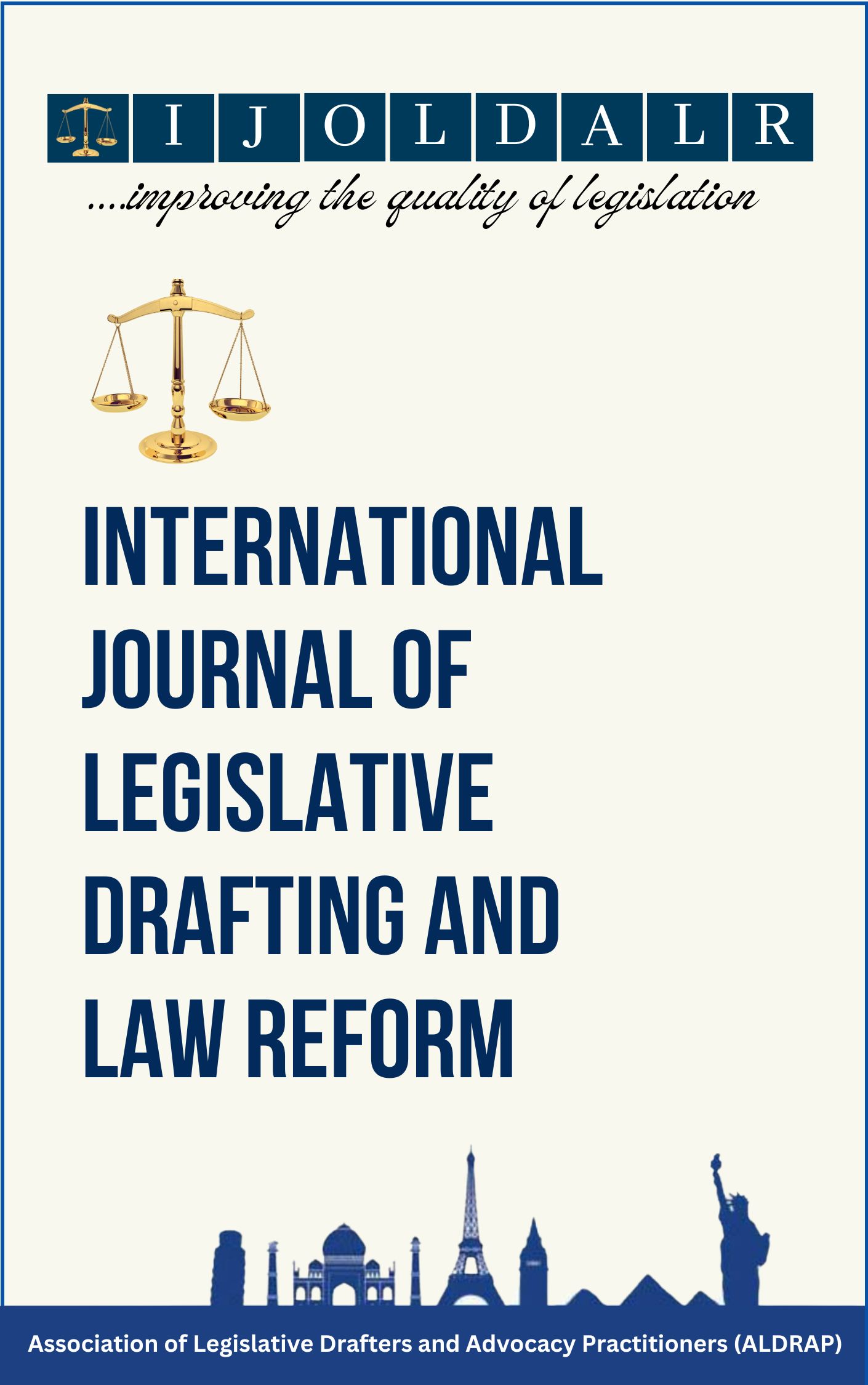Abstract
In an effort at legislative response to the COVID-19 pandemic, Nigeria’s National Assembly introduced a widely criticised Infectious Diseases Bill that is an exact replica of the forty-year-old Singaporean Infectious Diseases Act, 1977.2 This is against the background of previously touted ethical issues about the plagiarism of foreign laws or Bills introduced by previous legislators, that were not passed. Nigerian legislators are sometimes ranked by the number of Bills they introduce to the National or State Assembly, or the Bills which eventually are passed into laws. To meet this ranking, some legislators simply comb the archives of the Assembly, insert their names and present old Bills that were not passed by previous sessions of the State or National Assembly. Calls have arisen for the passage of a Code on legislative plagiarism and copyright infringement relating to Bills and legislation from previous sessions of the National Assembly and foreign jurisdictions.
Apart from possible rights in Bills, there is a debate whether Nigerian individual Statutes and the Laws of the Federation of Nigeria (LFN) are eligible for copyright protection. These concerns raise copyright issues. This article probes whether Bills and Statutes are literary works susceptible for copyright protection in Nigeria. In this context, Statutes are used interchangeably with and have the same meaning as laws, legislation, enactments, Decrees and Acts. It considers the positions of the two schools of thought on copyright in Statute in Nigeria, the pro-copyright and the no-copyright schools. It reviews the laws in eight African countries, the law in England and compares them with Nigerian laws on copyright in Statutes and Bills. It demonstrates that none of the rules of statutory interpretation supports the no- copyright in Statute school. The article reports the only Nigerian case where the issue of copyright infringement in Statutes has been ventilated. The purpose of reporting the case is to illustrate that acourt of law has ruled in favour of the copyright in Statute school. The author refrained from reviewing the case as the author of this article is a partner in the firm that instituted and prosecuted the case. Suffice it to say that there is hardly anyone who commercially distributes the software of Nigerian Statutes that does not assert against third parties who seek to download or distribute such software.
There is no intention to do any detailed analysis of ownership or the rationale for protection. Suffice it to say that the issue, whether copyright should be vested in Statutes poses several challenges. One of such is that countries that have privatized the government press office that owned the copyright in Statutes and the like, face heightened challenges of ownership of public property by the private sector.



 National Library of Nigeria
National Library of Nigeria.jpg) Association of Nigerian Authors
Association of Nigerian Authors Nigerian Library Association
Nigerian Library Association EagleScan
EagleScan Crossref
Crossref